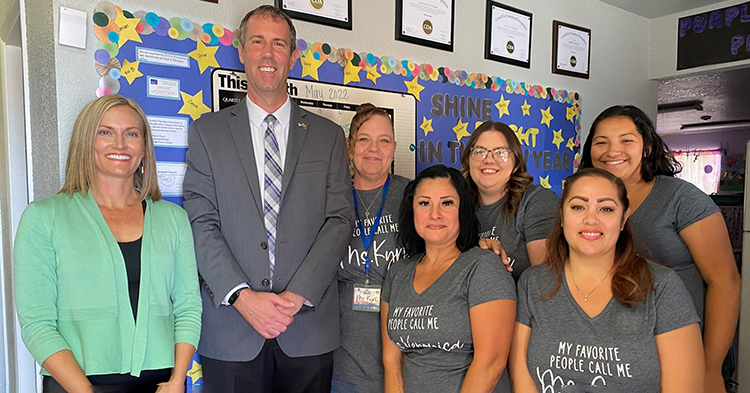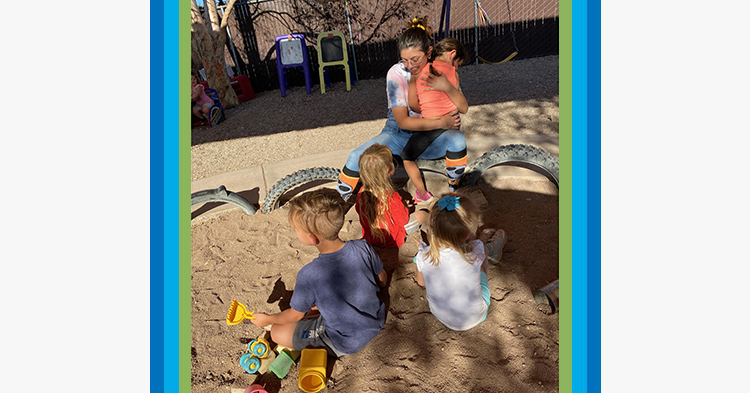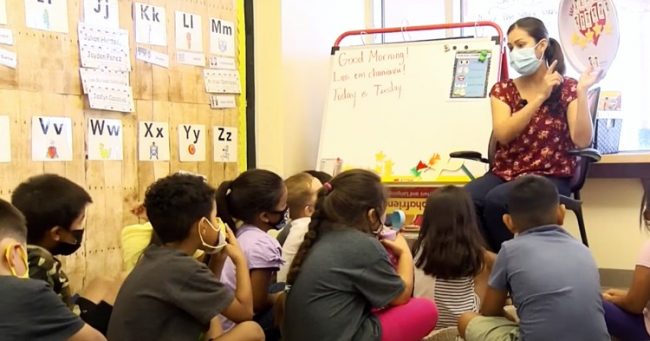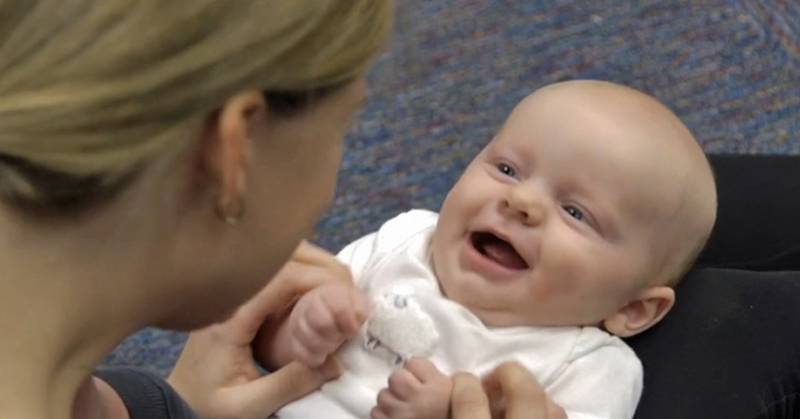
An early childhood professional development program in the First Things First La Paz/Mohave Region is helping child care providers better understand how babies and toddlers learn language and how they can help that learning during daily activities.
The La Paz/Mohave Language Development Project, which is part of a larger professional development program that the FTF La Paz/Mohave Regional Council is funding, recently wrapped up its four-year term to great success. There are plans to continue the work for a fifth year.
“There’s a lack of awareness of how early babies begin to develop language skills and how critical it is to their future development,” said FTF Senior Regional Director Ashley Pascual.
She oversees the West Region for FTF, which includes La Paz/Mohave. “The worry is that early language development is not occurring because children are having less and less quality interactions with their parents and caregivers because of other distractions. This means they are not developing the language skills they need and it will impede their ability to communicate effectively.”
The FTF grant allowed Early Childhood Education Associates Inc., which is based in La Paz and Mohave counties, to work with Renate Zangl, an international child language researcher, to implement science-based strategies from Zangl’s book, “Raising a Talker: Easy Activities from Birth to Age 3.”
Over the course of four years, 12 child care programs from La Paz and Mohave counties participated in the professional development classes that focused on how teachers can help children birth to age 3 learn language skills.
The goal is to close the language gap among children. Researchers say that children from lower socioeconomic families enter kindergarten having heard and knowing fewer words than their more affluent peers, which puts them at a disadvantage once they begin school.
“Dr. Zangl has done the research with the language gap,” said Margee Chieffo, who is president and senior managing associate of ECEd Associates. “Her work is specifically designed to address a child’s brain at the time when it’s learning the fastest.”
“Raising a Talker” was integrated into the culture of each child care center and preschool that participated in the project, Chieffo said. Center directors agreed to have their entire staff take the classes and implement the language program at every level for children birth to age 3 in their care.
“Think of it like a cookbook,” Margee Chieffo said. “You must follow the explicit steps. What happens when you leave out the eggs? The games are based on developmental language skills.”
At the heart of the project are language games that the teachers play with the babies and toddlers and build on each other. For example, the book has communication tips based on the ages of the child. In the baby’s first two months, Zangl encourages caregivers to:
- Get the baby’s attention through happy speech, eye contact, smiles and gentle touches.
- Mimic his vocalizations.
- Have face-to-face chats.
- Always pause to give him a chance to answer.
- Sing traditional and personalized songs.
- Let him listen to the sound of his own name.
These are some of the invitations for the baby to look, listen and touch. And there are suggestions on how to do these activities, for example: “Sit with the baby securely placed on your thighs, his face oriented toward yours. Look at home and sing or say his name in a friendly, slightly higher tone than usual as you make eye contact: “Hello, Harry. How’s my little baaaby?”
The project provided precise games for parents to help support language learning at home. The program included developmental checkpoints to progress monitor in real time the language and brain growth of the children cared for by teachers in the training.
“This allows equity of opportunity for every brain,” Chieffo said.
In addition to improvement in language skills among children in their care, teachers also saw levels of aggression greatly reduced in the children because they were able to communicate their feelings.
Directors and staff at child care centers across both counties were provided with Zangl’s monthly intensive hands-on training and three times each year, Zangl visited the preschools and centers to observe the teachers in action.
Access to in-person professional development is a challenge in the region, Pascual said. It’s one of the underlying purposes of the regional council’s investment in the strategy. The grant has created a connection to higher education, where before, child development classes tended to be online.
“(ECEd Associates) has developed a partnership with Mohave Community College and early childhood education instructors have been hired under the grant program,” Pascual said.
As the early childhood professionals move through the class offerings and earn a Child Development Associate (CDA) Credential, they have the opportunity to earn up to nine college credits toward their associate degree in early childhood education.
“It’s made the gap to becoming a college student more attainable,” Pascual said. “Sessions are offered on weekends and evenings. That piece was missing for a long time in the region.”





